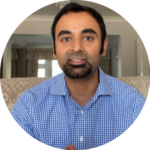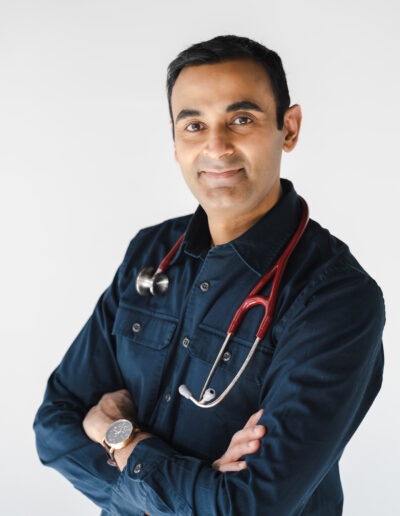In medical school—all over the world—one of the first things any future doctor learns in clinical medicine, is how to perform a “History and Physical”. For those of you not medically trained, this is the basic act of a doctor taking a thorough history from their patient and then performing a physical exam. This should be the fundamental basis of what comes next, as the doctor formulates their differential diagnosis and management plan.
A very wise old Professor in medical school once told me something I’ll never forget: The good doctor will know the diagnosis over 90 percent of the time, after taking a complete history—before even laying a finger on the patient or ordering any tests. This should still hold true today for the very best physicians, no matter the technologically advanced age we live in.
The standard history that is taught the world over is divided into the following sections:
- Chief presenting complaint
- History of presenting illness
- Past medical and surgical history
- Medications
- Allergies
- Family history
- Social history
Social history typically includes where the patient lives, who they are at home with, their line of work, and whether they smoke, drink, or use recreational drugs.
Hippocrates, the Greek Father of Medicine, said 2500 years ago: “It is more important to know what sort of person has a disease than to know what sort of disease a person has”. A timeless quote. We have to know where our patient is coming from socially, to be able to understand fully how they ended up in front of us sick. But that’s only half the story of how wise Hippocrates was. He was also a dedicated proponent of Lifestyle Medicine, and one of his other famous pieces of advice to his patients was: “Let food be thy medicine and medicine be thy food”.
Here we stand all of this time later, 2021 in an era of relative abundance, and I call for an additional segment to be added to the History we take from any patient. This could either be part of the Social History, or better still be a separate section between Family History and Social History:
- Chief presenting complaint
- History of presenting illness
- Past medical and surgical history
- Medications
- Allergies
- Family history
-
Lifestyle
- Social history
Under “Lifestyle”, some basic and quick questions can be asked: (i) Do you eat a lot of vegetables and fruit everyday? (ii) Is your diet high in fatty and processed foods including red meat? (iii) Do you have a regular exercise regimen? (iv) How much sleep do you get every night? (v) How would you rate your daily stress levels?
I would argue that the answers to the above questions are just as important as many others in any patient’s history! Especially when 70 percent of the population is overweight or obese, and large swathes of the population are suffering with their mental health. I have gotten into the habit of asking them to my patients and documenting this in the chart.
I recently saw a news interview on social media with a very prominent physician. I won’t mention her name, but let’s just say that she regularly does TV interviews and has a large audience. The journalist asked her a question about a new study that showed people with obesity and an unhealthy lifestyle were several times more likely to be hospitalized from COVID, and what advice she would have for the viewers? She paused for a second, and said a couple of quick sentences about “trying to stay healthy”, before rapidly moving off onto another point. This was incredibly disappointing. Here was a physician with a national audience that could have given some sincere advice to people, completely missing the opportunity. Maybe 5 or 10 percent of people would have listened and made a lifestyle change—however small. But nothing of substance from this doctor. It doesn’t surprise me though. Physicians are not taught to think along these lines, and about how peoples’ lifestyles are intrinsically intertwined with their health. We also don’t realize the enormous power of our words when we speak to our patients, in helping to initiate positive change.
Maybe rightfully adding Lifestyle Medicine to the History, will at least get us thinking about this.
 Suneel Dhand is a physician, writer, and YouTuber. He is Founder at MedStoic Lifestyle Medicine and DocsDox . Follow him on YouTube and Instagram
Suneel Dhand is a physician, writer, and YouTuber. He is Founder at MedStoic Lifestyle Medicine and DocsDox . Follow him on YouTube and Instagram


Telling like it is Suneel!!!
Not only for this but for CARING for patients. Unless we contact our primary, we are left on our own. What is their responsibility to help us, their patients? Fifteen minutes of telemedicine? Referrals rather than handling the issues themselves? That is not what I consider primary care.
Doctors don’t know or care about nutrition. That is for mothers and women or others to deal with. Write a referral and the topic isn’t even a part of the ‘history and physical’!
I remember being on the liver unit of a major hospital where the founder of same was the doc overseeing the medical students. Did any of them or the students ever talk to patients about they nutrition? They treated the alcoholism (no social services either) and no mention was made of diet.
PS They discharged the alcoholics on Thursday to make way for the new crop being Brought in the next day so the med students could have more patients to work up.
And so it goes.
Sue, this is the sad never ending cycle we are in!
Good points. These factors–stress, diet, exercise, and sleep quality are probably far more important for health than most of the things we “manage.” Would be nice to reach out to medical trainees with this advice and get them thinking along these lines early on!
Absolutely Jo– this needs to start early!